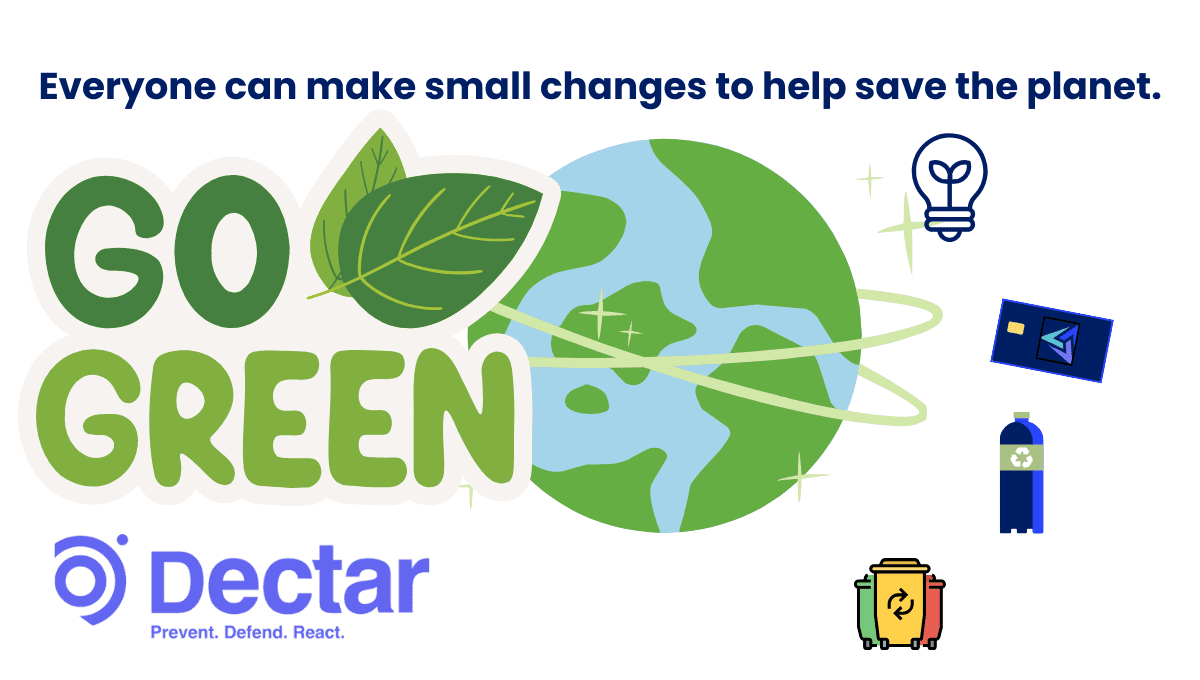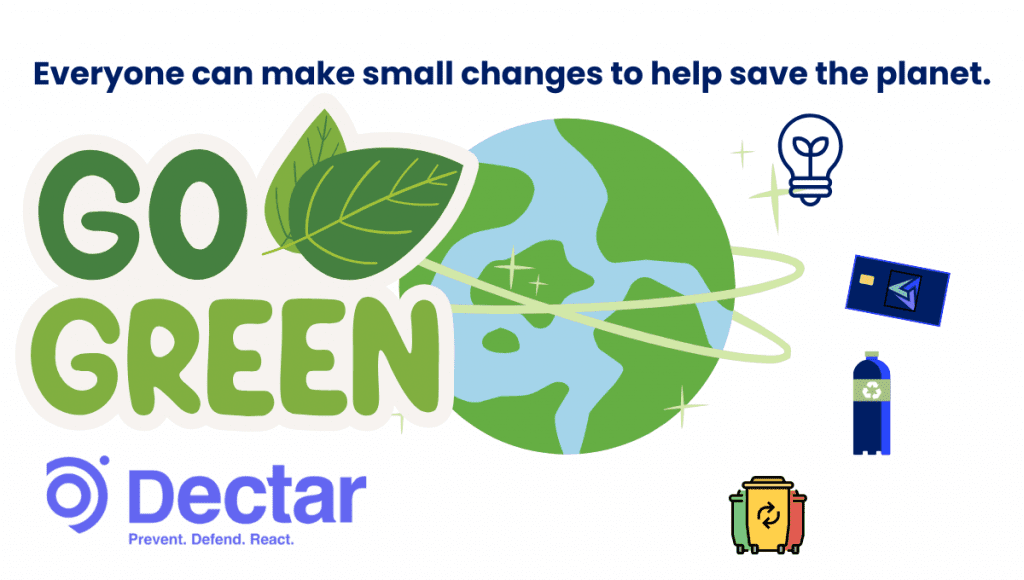
How many times have we read and heard that this or that organization is going green and revolutionizing processes and business models often to the detriment of said processes’ efficiency, the quality of their output and, in some cases, even of their reputation?
Going green should be reasonable and efficient and pervasive: it should, in fact, be carried out across the whole organization, starting from the little things. It should not be an opportunity for big statements and self-indulgence
Too Many Alternatives. Where To Start?
In Dectar all the staff is working remotely. This type of model allows to lower the business’ costs, it is Opex-friendly. It is extremely useful for a young scale-up.
The fully remote model also allows the employees to have that flexibility and modern work/life balance that is very much sought after these days, especially in modern companies.
But it was also a choice of the co-founders who wanted to talk the talk and walk the walk: having a lower impact, being more sustainable is a mission that Dectar embraces across the ranks and in the way it also does the little things.
On average, a company with 10 salespeople may need to get up to 5 thousand business cards printed per semester, 10 thousand per year. Or even more.
The impact of the aforementioned cards should also be considered in terms of heat produced, electricity and ink used to add the fancy colors of the logo and other details.
Small at a first glance, but pretty massive when you think about it, right?
Narrowing Down To One Choice
Dectar’s Marketing team then started surfing the web and checking with their network, inside and outside the organization, in order to find more eco-friendly products and alternatives
In recent years, in fact, more companies started developing their offering of eco-friendly business cards: digital, virtual, retrievable from QR code scanning and more.
There are some that may fit certain clients, but Dectar needed a sort of hybrid model that allows its own representatives to smoothly deal with more or less tech-savvy customers and prospects around Europe – some are young CIOs, others may be mature CEOs.

Dectar’s target had to be kept into consideration: some individuals may be more comfortable with a smartphone-to-smartphone interaction. Some others may prefer to scan a QR code on a physical card.
The goal was apparently in conflict: how to make it easy for all types of audience and still be sustainable?
How We Proceeded to Setting It All Up
The choice was made and Dectar’s Marketing team chose a hybrid business card that had a unique offering:
- it had to be printed only once, not on paper but on recycled plastics
- it catered to both traditional people and more tech-savvy ones
- It features useful functionalities to follow up with the leads after exchanging details with them.
The process required some more work in order to set it all up for the managers and salespeople, in particular, allowing them to exchange details fast and easy with people and monitor what happens to their contacts afterwards.
However, the motivation from Dectar’s side was relentless in order to take a small, albeit crucial step towards sustainability and having greener events, processes, employees and sales as well.
It is the typical case of taking a few small steps to be part of a bigger and relevant journey, contributing to making the business world a more eco-friendly place.